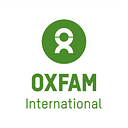Stories of courage and resilience from Grassroots Women Human Rights Defenders and Feminists in the face of the COVID-19 Pandemic
This is a production of the Coalition for Grassroots Human Rights defenders Kenya (CGHRDs Kenya). This publication was supported and funded by the Rosa Luxemburg Foundation, Dar-es-Salaam, Tanzania.
Fighting for the plight of domestic workers in the COVID-19 Pandemic; Emily Kwamboka of Domestic workers Right Spaces.
My name is Emily Kwamboka.
I am a human rights defender and l have been doing this work for ten years. I defend mostly the rights of domestic workers. I am the Founder and Executive Director Domestic workers Right Spaces. I usually organize meetings which they come and share their experiences.
During this COVID-19 season, the cases we are tackling are mostly to do with mental issues. When the President announced that we were working from home, this affected the domestic workers almost immediately.
Most of these women have to go out to work for their money on a daily basis. There is usually a base where we sit and clients come to pick us up for work. But when COVID-19 hit, we could not even access that area because of the lockdown and social distancing restrictions. Most of the women stopped going to work. There were very few clients willing to give us work. For those that got work to wash clothes, they would have dirty laundry thrown at them through the windows so they could wash them. The women were being treated as if they are contagious just by the mere fact that they are domestic house helps.
Another situation that challenged us is that we would go to wash clothes and these clothes most of the time had spittle on them or other discharges that exposed us more to COVID-19 than those who employed us. But because of the challenges of life and fighting to put food on the table, we had to wash the clothes whether they had spittle on them or not. This traumatized our members. They also experienced a lot of verbal abuse.
Our members were also challenged in terms of food. Because there was no work it meant they did not have any other means of income to feed their families. So as an organization we teamed up with a colleague ,a human rights defender Rachael Mwikali and Coalition for Grassroots Human rights defenders (CGHRD-Kenya) who helped us by mobilizing for food donations for distribution to the most vulnerable. This was extended to the domestic workers and their families. It really helped a lot during this time of difficulty.
I can say that the stigma issue that the domestic workers experienced was the biggest challenge. It is ironic to imagine that people would not want to come near you or even touch you yet they need you to wash their clothes, clean their homes, take care of their children and even cook for them. There was also a rise in domestic violence especially with our members who are married. The situation would arise since the children want food and both parents are jobless owing to COVID-19. Most of the people here do menial jobs which came to a halt during the pandemic. But what really worried me was when a man who lives here committed suicide when he lost his job. According to the family, he felt life was not worth living anymore because he had failed to provide for his family.
When it comes to cases of domestic violence and abuse, we have learnt to follow procedure when we get cases of domestic violence because we get threatened a lot. We first take the survivor to hospital then to the police station to report. But the challenge we go through is that a lot of survivors of gender based violence do not usually want to report. They are conflicted in their situations of dependency and also fear retaliation from their abusers. Sometimes we have to let the cases drop because without evidence, the cases have no legitimacy. Other times, the couple opts to settles their dispute out of court. Sometimes though, the situation gets even more difficult when the abused woman has no place to go and l end up hosting them in my house with my own resources. This comes about when there is no available center to host them. This is becomes a risky issue for me because l end up getting threats from some of their abusers, husbands and boyfriends, who threaten me for “inciting” their wives and girlfriends against them.
One of the biggest successes we experienced during this pandemic is that the partners we work with came through for us financially and in kind. Additionally, as residents of Mathare, we worked hand in hand to help each other through the pandemic. We shared and continue to share food with each other.
The government has not done much for us. If there was any food supposedly released to us, we did not get it. We depended on ourselves because we knew we had only ourselves. I would urge all human rights defenders to work together because we have no one else to support us. We must work together.
It would be good for us to be taught how to fundraise. We came to know it was a challenge during COVID-19 when we needed to raise funds to help our community. We are looking on not only on relying on donors but to start a feminist economy campaign where our members have their own businesses. We want our Human Rights Defenders to be financially stable and always ready for any eventuality. What kept me going was the support and solidarity amongst ourselves as women activists.
